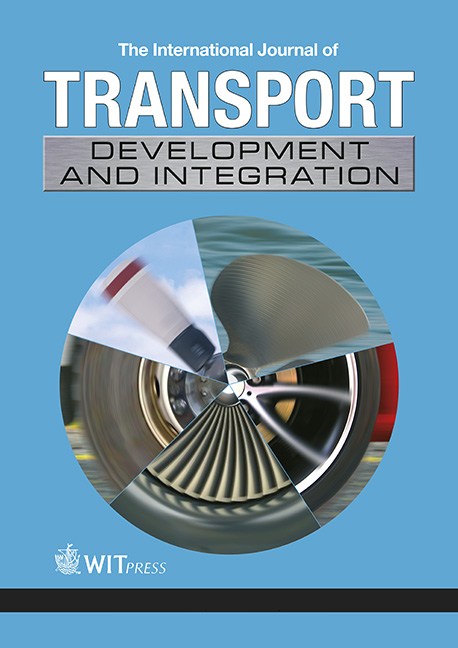Effects of traffic information on drivers’ day-to-day route choices
Price
Free (open access)
Volume
Volume 2 (2018), Issue 4
Pages
10
Page Range
342 - 352
Paper DOI
10.2495/TDI-V2-N4-342-352
Copyright
WIT Press
Author(s)
Genaro Peque, Jr, Toshihiko Miyagi & Fumitaka Kurauchi
Abstract
A multi-agent route choice learning model for the microscopic simulation-based dynamic traffic assignment (DTA) is used to investigate the effects of traffic information accuracy on drivers’ day-to-day route choice decisions. Using the total relative gap convergence metric to quantify the convergence speed for some chosen update cycle length intervals, the results show that a slight decrease in accuracy has a negative effect on the rate of convergence. From a learning perspective, shorter information up-date cycles from an advanced traveller information system induce faster convergence when compared to longer information update cycles. This implies that drivers learn faster, given the additional computational and storage costs of travel information that the system is willing to invest in. Moreover, when the update cycle length is very long, it produces a worse result compared to a scenario where drivers rely only on their own travel experiences based on the routes they have chosen.
Keywords
ATIS, day-to-day route choice, simulation-based DTA




